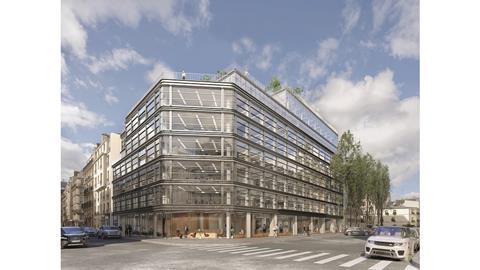In a year of disruption wrought by the coronavirus pandemic, the investment manager formerly known as Meyer Bergman is making changes.

The €7.2 bn private equity firm founded in 2004 has dropped its name and rebranded as ‘Mark,’ or to be more precise, MARK spelled out in capital letters.
It is a bold move that is part of a shift from traditional asset trading towards platform building in the emerging asset classes of life sciences and data centres. Speaking with PropertyEU, CIO Josip Kardun describes opportunities in life sciences as like ‘two worlds coming together.’
‘The combination of real estate and services is most interesting. Populations are getting older and healthier, which requires a lot of maintenance. Where there used to be just real estate, there are now customer-driven services and research areas.
‘We are interested in academic-led clusters and research and development. We’re exploring the operationally heavy side of life-sciences real estate,' he says.
New narrative
One intention of the name change is to give investors a clear narrative around these opportunities that mega-trends such as Covid-19, ageing populations and technology are creating; for example, the need for urban conversion projects in the retail and office segments.
New investors are getting involved, in the form of the Townsend Group, CBRE Global Investment Partners, Nuveen, Credit Suisse Asset Management and QInvest. But some things look set to remain the same, including Mark’s urban conversion activity in Germany, the Netherlands and Paris.
Logistics fund Crossbay – an extension of the firm’s urban mixed-use strategy – recently raised €550 mln and could have added a further €200 mln, says Kardun, but for a hard cap. Crossbay plans to amass €2 bn of European last-mile assets to tap into surging demand for strategically located distribution centres. Having recently secured assets in France and the Netherlands, the fund is also targeting gateway cities in Southern Europe such as Milan, Rome, Madrid and Barcelona.
Elsewhere, residential investments in Germany are set for growth and also in the neighbouring Netherlands, after Mark honed its Meyer Homes platform in London.
However, in what may be a sign of the times, the UK capital looks like having a smaller role in future, at least until uncertainty is resolved on Brexit and the pandemic. The firm will keep a presence in London, but expansion is not on the cards.
Says Kardun: ‘The pandemic is making people focus and discover things in other markets they didn’t see before. The buffers in the seven big German cities and even in Paris are still bigger than in London. I think the European view is becoming more multi-polar, meaning London will be less of a hotspot, although we are sure it will bounce back fully after Brexit is resolved.
‘The good thing is we have a lot of legacy and history in London with residential projects there and we are certain it will remain a centre of gravity, but Paris and Frankfurt will grow in importance.’
Urban conversion deals
In the pipeline, Mark is working on no less than two urban conversion and residential deals in Paris and Germany, with closings expected in Q1 next year. New purchases look set to follow a strategy which includes the ‘big seven’ German cities and the neighbouring Netherlands.
‘We have the very good nucleus of a residential portfolio we acquired a year ago in Frankfurt which is 800 residential units in the city region, across 60 buildings,’ says Kardun.
‘We are working on scaling up the residential strategy in the seven big German cities and the Netherlands, where we find fascinating and positive residential markets. This is something we will not confine just to these countries, the investor response means we can roll this out in other parts of western and northern Europe.’
Renaming the company also embodies how the business has naturally evolved over the years, he says.
‘The last pure play retail asset we bought was in 2014, but people have still been asking us how the retail portfolio is doing.
‘Meyer Bergman is a family name and the business has outgrown that. We are not a family office - we're a partnership comprising several branded platforms.’
Rules on social distancing which led to the leadership team working remotely actually fuelled the changes, Kardun reveals. ‘The pandemic has accelerated things and taught us that certain things have to change, and also to be more decisive in decision making.
‘The leadership team is disconnected physically during the pandemic and we have been talking more as a result. What’s interesting is that compared to being in an office, the decision-making is quicker.
‘When you’re in the office you can always catch up the next day or whatever, but during this pandemic everything has become brutally efficient, he says. ‘The leadership team promised each other we will keep up our momentum.’










